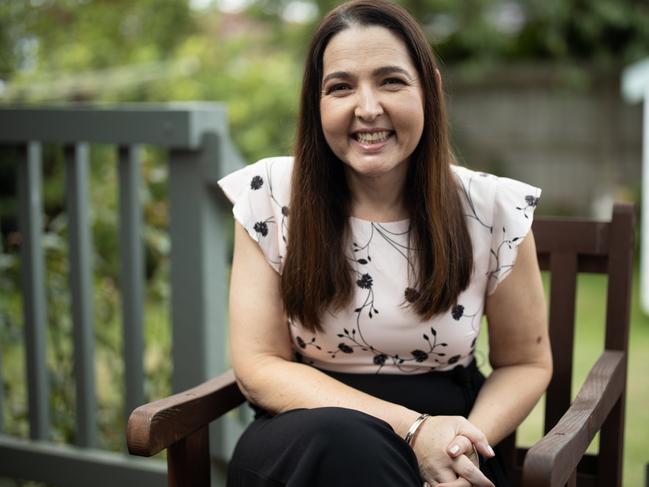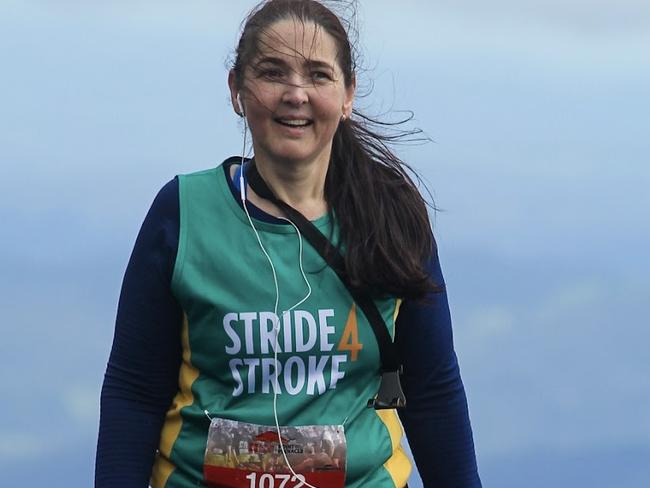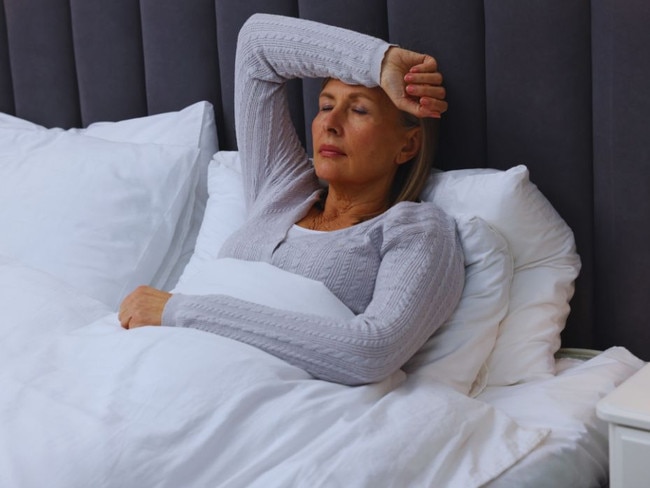‘How I got my sex drive back after menopause’ – what women can do
Shannon Nelson is so glad she spoke up about losing her libido - and she now feels like she’s had a second chance at life after getting help.
Menopause
Don't miss out on the headlines from Menopause. Followed categories will be added to My News.
Shannon Nelson had mostly had a healthy sex life with her husband of 27 years.
But when she went into menopause two years ago, she completely lost her libido.
“I just didn’t want to have sex at all, my libido disappeared completely,” the 51-year-old said.
“I didn’t feel attractive and I didn’t feel like myself, so I wasn’t going to (have sex).”
But fast-forward to today post-menopause and Ms Nelson feels like she has “had a second chance at life”.
She said she had suffered with hot flushes and night sweats for two to three years while in perimenopause.
But it was after her final period in March 2023 that her symptoms “really ramped up”.
“In that first year I was feeling really low with hot flushes and I was so moody,” she said.
“I was an absolute nightmare to live with.”

Ms Nelson had previously suffered a stroke and was in an appointment with her neuropsychologist when she finally opened up about what she was going through.
“I was mentioning to her I hadn’t had a period for nine months and hadn’t had sex for at least six months,” she said.
“She told me I could look into going on Menopause Hormone Therapy (MHT).
“Because I’d had the stroke, I didn’t think I could do any of that.
“That prompted me to make an appointment with a GP who specialises in menopause and then I was referred to an endocrinologist who specialises in menopause.”
First Ms Nelson said she started on a topical oestrogen gel, but struggled to sleep.
Then in March last year she began a different form of MHT and was sleeping better within two days.
The only problem was she still didn’t have her libido back.
Two months later she was put on testosterone cream.

“The testosterone solved the libido problem, we (me and my husband) had sex more regularly and I started to feel more like myself and the libido was back.
“Being on MHT was life-changing to me because I was feeling so down and so low and not myself and then once I started on the MHT and then the testosterone cream, I feel like I’ve been given a second chance at life.
“If you’re going through the same thing then please get help – it’s important for your relationship with your partner; we are sexual beings.”
How and why is sex drive affected during menopause?
The causes can be both physical and psychological, according to obstetrician and gynaecologist Amie Hanlon, who is also a board member of the Australasian Menopause Society.
“The lack of oestrogen can cause changes in the tissues around the vulva, vagina and urethra,” she said.
“So women can experience vaginal dryness, lack of lubrication, difficulty becoming aroused, sexual pain and urinary issues such as incontinence.
“All of those can add up.”
But she said low libido could also be linked to stress, mental health and feeling self-conscious.
“Some women might gain weight around menopause which can cause self-esteem issues,” she said.
“With increasing age there can also be medical problems that can affect sex drive.
“Or it can be something like family pressures, maybe the teenagers are at home or looking after elderly parents, or feeling stress at work.”
Dr Hanlon said it was hard to know how many women were impacted by low libido around menopause.
“There have been studies that have shown that a small percentage of women might volunteer these things, but it’s really on healthcare providers to be inquiring as to whether they are experiencing any sexual issues that are bothering or distressing them.
“Each time I see a woman who is in midlife I ask them if they are sexually active and if there’s anything about their sex life that is bothering them.”
What can you do about it?
Dr Hanlon said while hot flushes, aches and pains and other menopause symptoms tended to ease as time went on, symptoms linked to genito-urinary syndrome -including vaginal dryness, lack of elasticity, difficulty becoming aroused, sexual pain and taking longer to orgasm – would become worse with age.
“So it’s important to think about treating it early,” she said.
She said women might respond well to vaginal oestrogen replacement or vaginal DHEA.
Both are localised treatments taken via a pessary (bullet-shaped tablet inserted into the vagina) or cream.
“So if a woman comes to you when she’s perimenopausal or postmenopausal and she doesn’t have much in the way of other hormone symptoms, but has terrible genito-urinary symptoms in terms of vulva and vaginal changes, then it’s an excellent option for her because she’s targeting the area she needs to target,” she said.
Dr Hanlon also said seeing a pelvic health physiotherapist could help women with tight muscles.
Then, others might benefit from systemic hormone therapy.
“Some forms of hormone therapy might perform a little better for sex drive than others,” she said.

Post-menopausal women (a stage reached 12 months after the final period) might also benefit from testosterone cream, like Ms Nelson.
“There is an option for post-menopausal women who have low libido, or more correctly Hypoactive Sexual Desire Disorder, to trial testosterone,” Dr Hanlon said.
“I think it’s possibly underprescribed because maybe it’s not known about so much among doctors who might be unfamiliar with prescribing it.
“You only need to use it for six months and if it hasn’t made that better in six months it’s not going to.
“If it does make it better and they want to continue using it, we have to counsel our patients that it hasn’t been explicitly studied beyond two years of use.
“So we have to tell them there’s no safety data for long-term use and no safety data in women over about 65 years of age.”
Dr Hanlon said it also needed to be monitored to make sure testosterone levels weren’t too high.
“That’s so you don’t run the risk of side effects which can include things like acne, oily skin and oily hair,” she said.
“The worry is if you go even higher than that, then you could get side effects like male-pattern-baldness, excess hair and deepening of the voice.”
If the causes were more psychological it could be worth seeing a counsellor or sexologist, Dr Hanlon added.
Why menopause can be an enjoyable phase of life
Menopause can be the start of a “fruitful stage of life”.
You don’t have to worry about contraception anymore and you don’t have to deal with monthly periods.
You can also focus on your professional ambitions, travel more and spend time on activities and hobbies that interest you.
That’s the viewpoint of Finkel Professor of Global and Women’s Health at Monash University Jane Fisher.
“It’s not necessary to view menopause through a catastrophic lens,” she said.
She has launched a series of videos to help women see menopause as the beginning of an enjoyable and productive life phase.
“There’s no doubt that sexual pleasure, sexual desire, sexual intimacy is a crucial element of wellbeing, but I think it’s false to suggest that if sexual desire diminishes then there is no more pleasure or joy in intimacy, because people often say they have better intimacy in that last third of life than they have earlier,” she said.
More Coverage
Originally published as ‘How I got my sex drive back after menopause’ – what women can do





